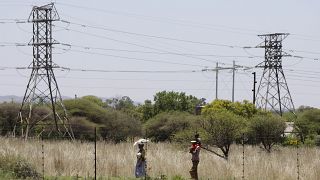Egypt
Egypt’s agricultural export is expected to grow by about 15 per cent in 2017 in comparison to 2.2 billion US dollars recorded last year.
This growth has been attributed to the states decision to float its currency in November.
The move has led to a surge in demand as the fruit and vegetables are now more competitively priced on the global market.
“November’s flotation of the currency gave a push to Egyptian agricultural producers and exporters, so if we pay attention to the last three months of last year, we’ll see that agricultural exports have increased by a lot, by rates higher than previous years. This is a result of the currency flotation, which led to a more competitive ability for Egyptian exports and opened new markets, which we had been working on for maybe two years,” said Mostafa Al-Naggari, Chairman of Fresh Fruit Co.
According to reports demand has doubled, with every product gaining one or two markets. The growing interest follows a turbulent year for Egyptian produce after a temporary ban of fruits and vegetables in one of Cairo’s top buyers, Russia.
Emad Said, senior managing director at Japan Solution said, “The clever ones will expand to new markets and seize this opportunity – because no matter how much prices have increased on the local level, the devaluation of the pound covers these increases and makes us competitive.”
Analysts believe that along with a sharp reduction in imports, a rise in agricultural exports could help narrow the country’s ballooning trade deficit.
Reuters













01:26
Zimbabwe’s Climate-Smart Agriculture: Empowering Farmers through Resilience and Innovation
11:07
Botswana's new government races to diversify its economy {Business Africa}
01:59
Botswana’s young farmers hope new government will boost agriculture sector
11:07
Benin: Tapping the potential of luxury tourism [Business Africa]
01:28
Putin says BRICS countries will drive economic growth in coming years
Go to video
Zimbabwe to compensate white farmers 20 years after land seizures